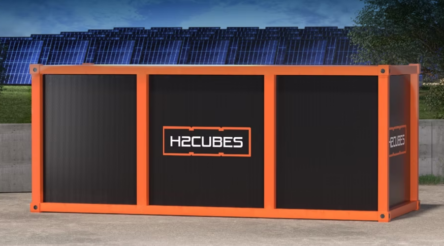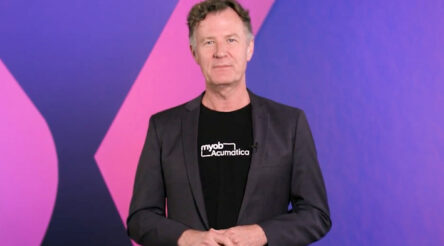Heard around the weld
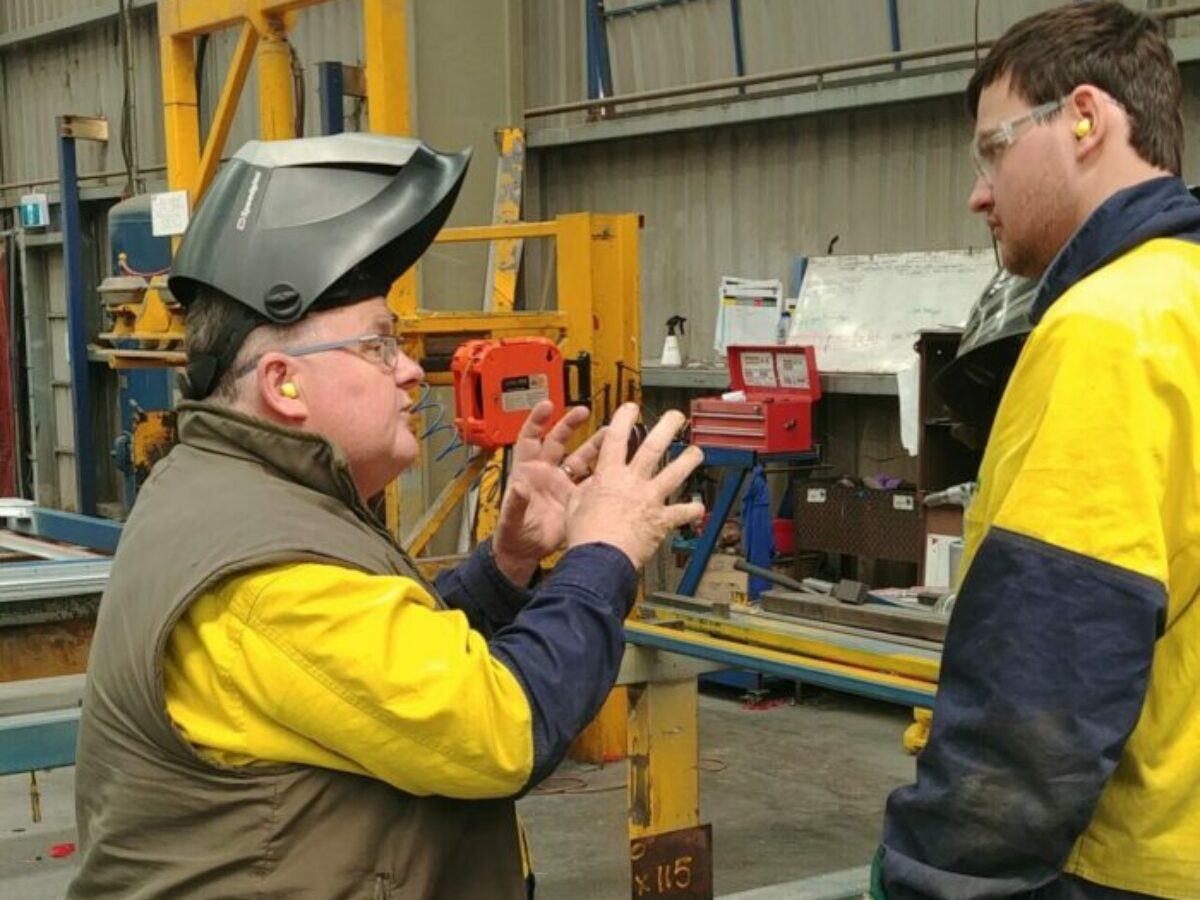
Our profiles of nominees for @AuManufacturing's Australia’s 50 most innovative manufacturers campaign continue with Open Welding. Brent Balinski speaks to founder and Technical Director Malcolm Rigby.
He doesn’t use the word “Eureka moment”, but Malcolm Rigby had one of those a few years ago during a phone call about a shielding gas mixture.
Rigby was at his desk in Melbourne, where he was then employed by Air Liquide in business development. A salesperson was with a client in South Australia, trying to convince them of the value of the consumable.
The client was told to take a welding pass while the salesperson held a phone up to the job for a couple of seconds.
“And I said ‘No, no no. What this guy needs to do is to change a little bit of this voltage value and change a little bit of this amp value; just a very tiny bit, and do it again. So he did it again. And I said ‘No, no, stop. I just want you to increase the stick out. Just by a couple of millimetres,’” Rigby recalls.
“Instantly the product performed and the weld performed a lot better. And everyone was very thankful and I got off the phone. But when I got off the phone I thought ‘why does it take myself to be able to advise that person in South Australia? Not only the company representative, but the welder as well. Surely there must be a way we can automate this.’”
Sound on its own can carry a surprising amount of information.
Last year Pfizer bought ResApp Health for $179 million, following the Australian company’s success in a pilot trial diagnosing Covid-19 infections based on a patient’s cough. The company had its origins in signal processing research at The University of Queensland, led by Udantha Abeyratne and going back to 2009, using data derived from coughs to diagnose respiratory diseases.
Analysis of speech and other patient sounds is being used by other companies to detect disease.
And in the industrial world, companies including Australia’s Movus are tapping into noises from machines to help customers make better use of these assets.
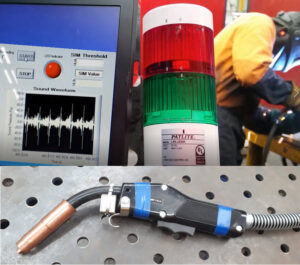
After a bit of digging, Rigby discovered that there was no shortage of research – some of it going back to the 1920s – on the information contained in welding sounds.
“Even the US Atomic Energy Agency was exploring this in 1969. And they all came to a conclusion that there was a possibility of processing in a sort of close to real-time activity then it would be worth it,” he tells @AuManufacturing.
A literature review for an ARC Linkage grant application found 57 papers on the subject, but no solution. The resulting project, partnering with UTS and Sound Intuition and beginning in 2017, sought to develop one.
“We were also approached by [University of Wollongong ], and they were a little bit miffed,” Rigby recalls.
“They said ‘Why didn’t you come to Wollongong. We’re the welding centre of excellence.’ And I said to the Dean there, I said, ‘look, the problem is an acoustic problem, not a welding problem.’”
The resulting RGL solution has been available from Rigby’s startup, Open Welding, for two years.
He describes it as containing a custom-built microphone, processing box, and software, with a current focus on the three areas of welding compliance, ranking competency, and training.
The company currently has “three or four” early customers and an official launch is planned for when they secure a marquee client.
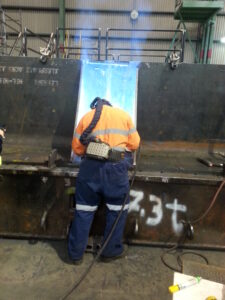
On commercialising new technology, Rigby says it helps to be driven by a purpose beyond just making money, especially when the going gets tough.
“That’ll take you so far, but it just won’t take you to that bigger appreciation of what you’re doing. I often say to people that I work with, you’re going to walk through a desert at some stage. And you’re going to be really thirsty for water. So what’s going to get you to the other side? It’s going to be the vision that you are doing something greater,” he explains.
“Yes, we’re going to make some money and that’s all very good. But at my age, I live a comfortable life. I want Australia – to quote a former prime minister – to be the smart country. Australia can be just so clever. It does frustrate me that we lose a lot of opportunities.”
In this episode of @AuManufacturing Conversations with Brent Balinski, we heard from Rigby about his first-time entrepreneurial adventure, why he believes the new welding solution can train anyone in three days, and some of the difficulties of working with university researchers.
Episode guide
1:15 – What Open Welding does – capturing and analysing welding sounds to understand weld quality.
2:14 – About Rigby’s career, starting as a plumber, and how it led to a key insight.
4:05 – “Surely there must be a way we can automate this.”
5:02 – Years and years of observation.
5:50 – A literature review. “I had no idea people had been investigating this for almost 80 years.”
7:37 – The ARC committee and the encouraging feedback from the panel.
10:20 – A critique of the university and working with them.
11:40 – How it’s done.
13:10 – Covid puts a black cloud over everything, with product development not finished.
14:20 – developing a new product associated with compliance and ISO 3834.
16:10 – the need and the challenge to focus and not dilute their message.
17:50 – “We can make anyone a welder in three days if they pass the aptitude test.” The problem is bodies, though.
19:10 – Lessons from the skills shortage in WWII and how it was met.
21:30 – Rigby’s opinion on what’s wrong with innovation initiatives.
Pictures: supplied
 Australia’s 50 Most Innovative Manufacturers is a new campaign by @AuManufacturing. It has been made possible by the generous support of MYOB, SMC Corporation Australia, and Bosch Australia Manufacturing Solutions. Be sure to check back at this website for regular updates including profiles of nominees and other information.
Australia’s 50 Most Innovative Manufacturers is a new campaign by @AuManufacturing. It has been made possible by the generous support of MYOB, SMC Corporation Australia, and Bosch Australia Manufacturing Solutions. Be sure to check back at this website for regular updates including profiles of nominees and other information.
@aumanufacturing Sections
Analysis and Commentary Awards casino reviews Defence Gambling Manufacturing News Online Casino Podcast Technology Videos



